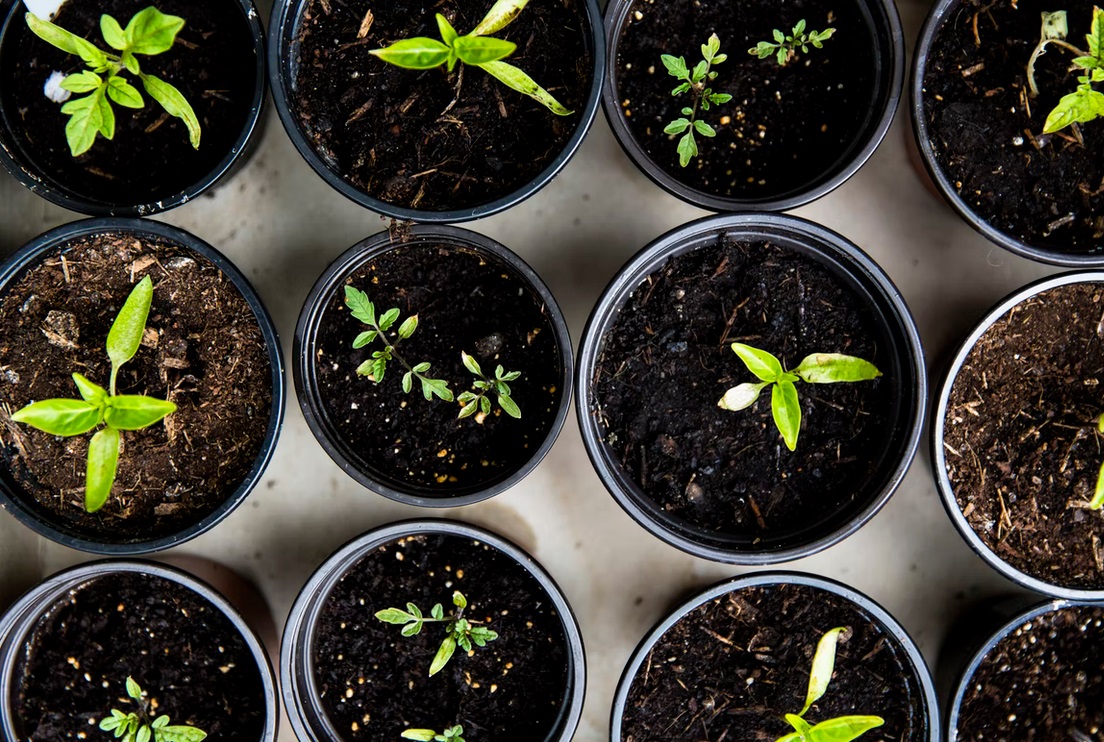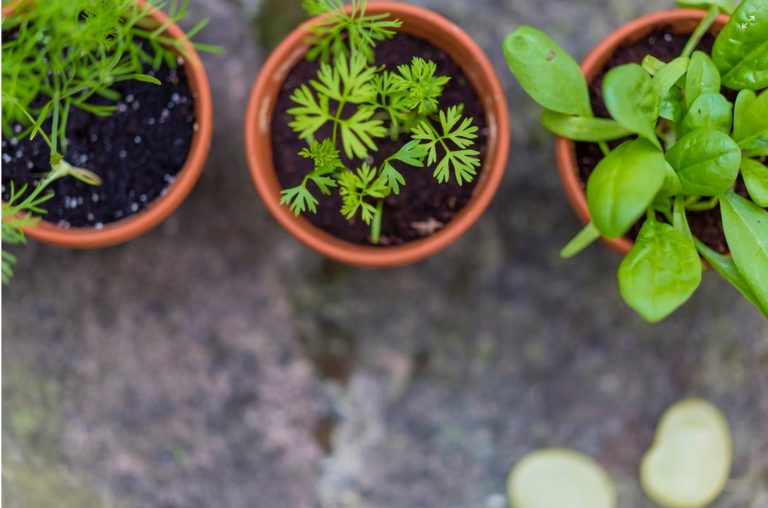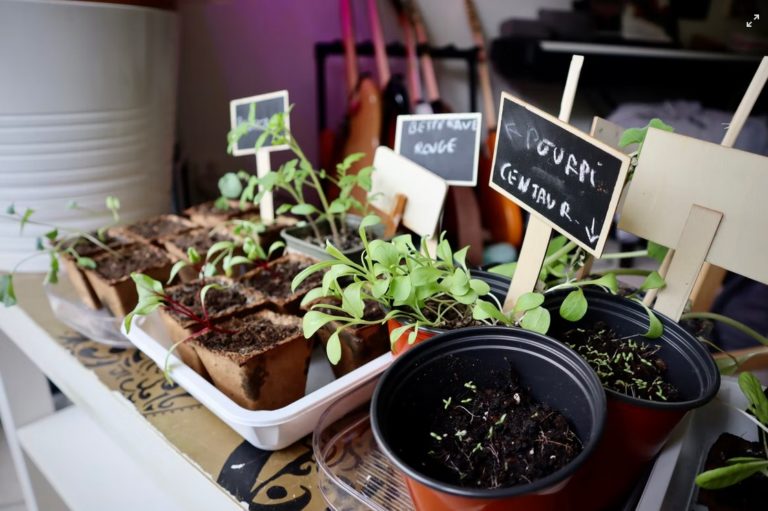Raising vegetables in a container entails many benefits. If your space has limited space or is unsuitable for gardening, you may resort to container gardening and grow fresh, nutritious vegetables and place them on your patio, window sill, doorstep, or balcony. You now have a productive mini-garden with homegrown produce like herbs or salad greens easily accessible from your kitchen.
Though there’s culinary convenience, there are some challenges and downsides to vegetable container gardening. That’s why it’s also important to review before adopting a potted environment. So, read on below! We’ve listed the pros and cons of growing vegetables in a container. Through these, you can assess your circumstances and determine if it’s the right choice for you.
Pros of Growing Vegetables in a Container
Container gardening brings numerous benefits such as portability and space-saving; however, it’s essential to address potential pest issues that might affect your plants. No matter where you grow your vegetables, managing pests is crucial to maintaining a healthy and thriving garden. To ensure your container-grown vegetables remain free from infestations, consider enlisting professional pest control services that specialize in eco-friendly and efficient solutions tailored for container gardens. By proactively addressing pest concerns, you’ll keep your plants healthy and enjoy bountiful harvests.
Here are a few incredible benefits of growing vegetables in a container:
1. Improved Flexibility and Suits Limited Space
One of the primary perks of vegetable container gardening is that it offers more flexibility than in-ground or raised bed gardens. If you live in a suburban area where the rules and regulations of your homeowner’s association restrict you or perhaps in an apartment complex with only a small deck, there’s no stopping you from growing vegetables.
You don’t need a large backyard as this method is best suited for very small spaces. You can always plant vegetables in containers and place or hang them in the space available in your window, balcony, patio, or rooftop.
2. Containers are Portable
Unlike fixed garden plots, containers also offer more mobility as you can always easily move them to achieve the best growing conditions. For instance, fixed raised beds and in-ground gardens are more vulnerable to extreme weather, critters, and pests. You won’t face such problems in containers as you can simply place them in a new, more suitable spot in your home when necessary.
You can move a specific vegetable to a location where it can receive good morning sun and move it back as the sun changes its position later in the day. You can also transfer the plants indoors during the winter to protect them from the harsh, chilly weather and extend their life. That goes the same in the summer when you can move your vegetables to a shaded area during scorching days.
Meanwhile, if you have pets or are in an area visited by wild animals, it’s always easier to keep containers away from their reach. Large containers won’t also be an issue as you can put them on wheeled stands or trolleys for maneuverability.
3. Fewer Weeds
Raising vegetables in containers provides you with better control of what soil type to use and which seeds go into it. That decreases the likelihood of weeds growing along with the container plants. Weeds grow faster and can take up valuable space, suck up water and nutrients, and block sunlight. Thus, depriving your vegetables of the essentials to grow.
While there are still chances of weeds growing due to birds and wind carrying some seeds, you won’t find them as much as in raised beds and in-ground gardens.
4. Fewer Diseases and Pest Problems
In addition to fewer weeds, growing vegetables in a controlled environment entails fewer diseases and pest problems. Just ensure that you have sufficient light, good quality potting soil, suitable heat conditions, and ample watering. Expect to reap the high-quality produce from your vegetable container gardening.
If one of your vegetables still gets infected with diseases and pests, you can simply move the container and isolate it. That way, you can prevent it from spreading diseases or pests to your other plants and be able to take care of it until the issue gets resolved.
5. Less Physical Stress
Let’s be honest: gardening isn’t an easy task. It requires getting on your knees, bending over, and carrying considerable weight, which can cause tiredness, stiffness, and pain in the muscles. Luckily, you don’t have to experience such physical stress in container gardening. All you need to do is position your containers at a comfortable and workable height. You no longer need to kneel or stoop down to attend to your plants, making it perfect, especially for older people who want to continue gardening despite physical limitations.
6. Boosts Confidence
Raising vegetables in containers can be a stepping stone if you’re a beginner or intimated to start a full-time garden. Given their small size, they’re easier to manage and maintain. Thus, it is a good way to boost your confidence in gardening. By having control over growing conditions like the soil type, water, sunlight, and nutrients, you can expect better success in the long run. As soon as you get the gist, you can take on more challenging gardening tasks if you wish to.
7. Unleashes Creativity
A bonus of this gardening method is that you can unleash your creativity. Containers don’t have to be mere pots alone. You can repurpose tin cans, jars, wooden boxes, boots, buckets, tires, deep pans, and even toilets as containers! Paint in all sorts of colors and designs. Then, arrange them in your home based on the look you want to achieve. Just use your imagination, and endless possibilities and fun await you!
Cons of Growing Vegetables in a Containers
While it has various benefits, vegetable container gardening also has its drawbacks. Here are some cons and challenges you should know:
1. Requires More Watering
The soil in containers usually dries out faster as there’s smaller space available. That means vegetables require more frequent watering than they would if they were raised on the ground or on raised beds. If you live in a warm or windy area, you may have to water them up to three times a day. You must meet their watering requirements to keep them happy and hydrated. Otherwise, your container vegetables will dry up and become unhealthy.
2. Needs More Fertilizer
Aside from water, it’s also necessary to add more fertilizer to your container plants. Remember, their space is limited, and their roots won’t be able to search for nutrients, unlike those planted on the ground. You must ensure that your vegetables are receiving sufficient nutrients to keep them fresh and healthy. It should be in combination with good soil and the right texture so that these nutrients won’t get leached out from your container.
3. Containers can be expensive
You’ll find different types of containers in the market. They come in all sorts of materials, colors, sizes, and designs, but some of the high-quality or decorative ones can be pretty expensive. While you may exercise your creativity and recycle other items instead, doing so can also mean spending a considerable amount of money on the sanding, painting, and other materials you might need. Not to mention that there’s also natural wear and tear, which means you need to replace some and purchase new ones at some point.
4. Some Vegetables Don’t Grow Well in a Container
Not all vegetables thrive well in containers. Corn, melon, cucumber, squash, and pumpkin are large, sprawling vegetables that require lots of space and will do better if raised on the ground. Meanwhile, root crops like turnips, potatoes, and carrots need deeper containers to do well. If you want to try container gardening, you will do better planting pot-suited plants like tomatoes, pepper, green onions, lettuce, radishes, beets, beans, and parsley – still an incredible selection to plant in your home.
5. Vegetables Outgrow Their Container
Another drawback of container gardening is that vegetables can outgrow containers. You need to replace their pots and transfer them into bigger ones when this happens. If not, pots may restrict the growth of your vegetables by confining the roots and making the crop stunt. The task can be a hassle if you have other things to do, so you need to re-assess if you can handle such extra upkeep.
Final Words
Homegrown vegetables in containers can be a great addition to any landscape, but make sure that you’re willing to devote effort and commit your time and a portion of your budget to maintaining them. Weigh both the positives and negatives. Through that, you can make a smart decision if container gardening is indeed for you.



